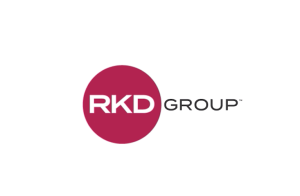Revenue surpluses maintained by nonprofit health insurers in New Jersey are potentially up for grabs in legislation pushed by Gov. Chris Christie who is eyeing $300 million of Horizon Blue Cross/Blue Shield of New Jersey’s reserve to fund major portions of his anti-opioid initiative.
The plan has been panned by, among others, Forbes Media chairman Steve Forbes. In an op-ed with FOX, Forbes opined that there were several things wrong with seeking out the funds — including potentially increasing insurance costs and harming an entity that, despite being a nonprofit, pays more than $500 million in taxes.
State Sen. Joseph Vitale (D-Middlesex) introduced Senate No. 4 on June 22. The bill states that no health service corporation shall be organized for pecuniary profit and that such corporations shall have charitable missions including fulfilling obligations as insurers of last resort, providing affordable and accessible health insurance, and assisting and supporting public and private healthcare initiatives.
The bill further lays out a public process aimed at examining health service corporations’ annual regulatory filings and other information to determine “appropriate, efficient surplus.” The process shall include public testimony and testimony from health insurance experts. Surpluses beyond the determined range will be labeled inefficient and the corporation will have 90 days to file a report either justifying its surplus or providing a plan to reduce its surplus to the efficient surplus range.
A request for comment placed with Vitale’s office was not returned prior to publication. A spokesperson for Christie declined comment on the bill, citing a policy not to discuss pending legislation until it is adopted.
Christie, in addition to Horizon’s surplus, has taken aim at the insurance giant’s board while also seeking measures to increase transparency among agencies in which the state contracts for goods and services.
Executive Order No. 227, unveiled this past Friday, calls for state agencies to ensure that all final orders, decisions, and opinions are posted on agency websites – including notices of contract violations, sanctions, enforcement actions, and fines. The executive order calls for every state agency to post interim orders, decisions, and opinions that predate the order as soon as practicable. “Transparency and accessibility of agency decisions provides accountability of state government and the entities with which it contracts for goods and services,” the order reads.
In a press conference last week, Christie focused on Horizon — which services 55 percent of the New Jersey market, 3.8 million total members in the state, and 1.9 million members insured through government entities including Medicaid — in his call for greater transparency. Horizon was fined $15.5 million by the state Department of Human Services’ (DHS) Division of Medical Assistance and Health Services on June 19, Christie said. The sanction alleges violations including non-timely and inaccurate processing of claims, inadequate handling of provider and member complaints and inquiries, and inaccurate financial reporting.
Christie additionally noted sanctions against Horizon by the New Jersey Department of Banking and Insurance for allegedly mishandling provider claims totaling $550,000, opining that the $16 million in recent fines “could just be the tip of the iceberg.”
The Republican governor and unsuccessful 2016 presidential candidate also discussed his proposal to double the number of government-appointed Horizon board members. At present, the governor appoints four of Horizon’s 15 board members, but the proposal would allow for an additional two public appointees each selected by the state’s senate president and assembly speaker. Christie further made mention of Horizon’s reported $2.5 billion in reserves during his remarks.
“It’s much too much money for them to be keeping, and when you understand that they only have two profitable lines, Medicaid and investment on income, that’s the only other place where they made a profit last year, you know, and holding back the payments as they’ve been now found to do by the Department of Human Services, improperly holding back payments to providers in the Medicaid program, is another way for them to keep that money longer and make more on their investments,” Christie said. “It’s, it’s absolutely unconscionable to do that to the health care providers who provide help to the most vulnerable in our state.”
Christie’s spokesperson largely referred to the press conference transcript when reached for comment. The executive order does not single out any one carrier and instead addresses concerns that violations assessed against Medicaid carriers were not posted for public review. Christie’s proposal for Horizon to share excess surplus is separate and is predated by Horizon’s citations, according to the spokesperson.
“Transparency is important to this administration, however the [executive order] is very specific to how the public can check, via website, the DHS citations against all Medicaid carriers, which historically have not been posted to the DHS website,” the spokesperson said via email. “It is a unique situation involving the health care of our most vulnerable population.”
A representative of the Center for Nonprofits, New Jersey’s nonprofit association, said in an email that the center has not drafted a formal position on the Horizon developments, but are looking carefully at potential implications for the broader nonprofit community.
Thomas Vincz, public relations manager for Horizon, focused on Vitale’s bill when sought for comment. Horizon found Vitale’s bill on the state Legislature’s website Friday evening and the legislation continues to change despite members of the state senate already meeting to approve it, he said. Horizon leadership has yet to see a final version of the bill and Vincz stated that labor and business leaders have likened the process to the closed-door meetings Congressional members had before introducing the most recent federal healthcare bill.
“This measure is a giveaway to special interests and is retaliatory and punitive to Horizon,” Vincz said in a statement. “It needs to be defeated. Horizon is always willing to work with anyone to improve access to affordable care, but we support the elected leaders on both sides of the aisle, our business, consumer, and labor leaders who have said that any effort to single out and politicize Horizon during 11th hour budget talks is wrong.”









